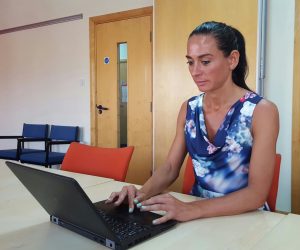Prime Minister Theresa May launched a review of post-18 education and funding at Derby College in February 2018. As adult education institutions in England await the publication of the Augar review, Professor Mary Kellett, Vice-Chancellor of The Open University, reflects on the government’s commitment to support lifelong learning in a blog on the educational policy website, WonkHE.

Professor Mary Kellett, Vice-Chancellor, The Open University
Protecting lifelong learning
The Open University pioneered open access, flexible learning 50 years ago and is today the UK’s largest university. It supports more than 174,000 students, more than a third of those lacking educational qualifications to get into traditional universities as highlighted by Professor Kellett:
“Lifelong learning means access. Part-time undergraduates value the flexibility online brings: being able to fit study around work, family and other commitments. The Open University is open to anyone anywhere, reaching thousands of people who might otherwise be excluded from learning. More than a third of our students lack the qualifications they’d need to get into traditional universities. With our support, they can achieve success.”
She also calls for more cross-party support for lifelong learning saying: “Politicians must prove this isn’t just political rhetoric. Lifelong learning must play a key role in their focus on delivering the policies that enable people of all ages and backgrounds to have the skills and opportunities to succeed.”
Professor Mary Kellett, Vice-Chancellor of The Open University, is one of three leading higher education figures invited to give her opinion on lifelong learning as part of a special series on WonkHE. Professor Mary Kellett’s blog on lifelong learning on WonkHE can be read in full here.
Why lifelong learning is vital for success
OU graduate Faye Banks left school with no qualifications and is now one of UK’s top female engineers. After a stint in an unskilled job at a local manufacturing plant she realised that she didn’t want to spend the rest of her working life in a dull and repetitive job so she decided to give college another go. This time round completed her studies, achieving 10 grade A GCSEs.

Faye Banks’ career has skyrocketed thanks to OU study
Getting her GCSEs spurred Faye on with her education and she went on to secure an apprenticeship and to obtain an HNC in electrical engineering. Working full-time meant that taking her studies further and going to a traditional university to get a degree simply wasn’t an option. Instead she took the OU route which allowed her to continue working whilst pursuing her dream of getting a degree. She says:
“For me the OU has been life-changing. It has enabled me to achieve my dream of becoming an Engineering Consultant and without my OU qualification, I would never have had the opportunity to develop into this role.”



